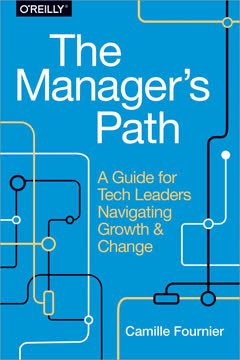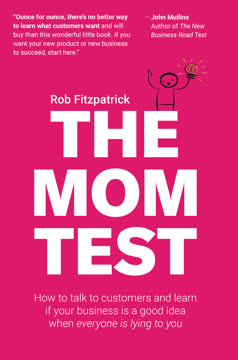가지 주요 요점
1. 디지털 기술은 특정 행동과 결과에 편향되어 있다
디지털 기술은 모든 것이 명확한 예-아니오, 상징적 언어로 표현되어야 하기 때문에 선택에 편향되어 있다.
내재된 편향성. 디지털 기술은 중립적이지 않으며, 우리의 상호작용과 결정을 형성하는 내재된 경향을 가지고 있다. 이러한 편향성에는 선택, 즉시성, 추상화가 포함된다. 이러한 편향성을 이해함으로써 우리는 디지털 도구를 더 의식적이고 효과적으로 사용할 수 있다.
사회에 미치는 영향. 디지털 기술의 편향성은 우리가 소통하고, 일하고, 생각하는 방식에 광범위한 영향을 미친다. 예를 들어, 선택에 대한 편향성은 결정 피로를 초래할 수 있으며, 즉시성에 대한 편향성은 깊이 있고 반성적인 사고 능력을 약화시킬 수 있다. 이러한 경향을 인식함으로써 우리는 그 부정적인 영향을 상쇄하고 긍정적인 잠재력을 활용할 수 있는 전략을 개발할 수 있다.
2. 디지털 생활의 "항상 연결된" 특성을 이해하고 탐색하기
권한을 부여받고 인식하는 대신, 우리는 지치고 피곤해진다.
끊임없는 연결성. 디지털 시대는 우리가 항상 이용 가능하고 응답해야 하는 영구적인 연결의 시대를 열었다. 이러한 "항상 연결된" 사고방식은 스트레스, 번아웃, 중요한 작업에 집중할 수 있는 능력의 저하를 초래할 수 있다.
통제권 되찾기. 끊임없는 연결성의 부정적인 영향을 극복하기 위해 우리는:
- 기기 사용에 대한 경계를 설정하고
- 지정된 "오프라인" 시간을 만들고
- 기술과의 의식적인 참여를 실천하고
- 대면 상호작용을 우선시하고
- 깊이 있는 작업과 집중된 주의력을 위한 전략을 개발해야 한다.
디지털 습관을 통제함으로써 우리는 연결성의 이점을 활용하면서 그 함정을 피할 수 있다.
3. 가상 연결과 현실 세계의 상호작용 균형 맞추기
디지털 영역은 지역적이지 않고, 탈지역화에 편향되어 있다.
가상 대 물리적 존재. 디지털 기술은 광대한 거리의 사람들과 연결할 수 있는 능력을 확장했지만, 지역적이고 대면 상호작용의 가치를 저하시키기도 했다. 이러한 변화는 우리의 즉각적인 주변 환경과 공동체로부터의 단절감을 초래할 수 있다.
균형 맞추기. 건강한 관계와 강한 장소감을 유지하기 위해:
- 가능한 경우 대면 상호작용을 우선시하고
- 디지털 도구를 지역 연결을 강화하는 데 사용하고
- 지역 사회 활동과 행사에 참여하고
- 물리적 공간에서의 마음챙김과 존재감을 실천하고
- 체화된 경험의 고유한 가치를 인식해야 한다.
가상과 물리적 상호작용을 의식적으로 균형 맞춤으로써, 우리는 디지털 연결성의 이점을 활용하면서 지역적이고 체화된 경험의 풍요로움을 보존할 수 있다.
4. 디지털 공간에서 복잡한 문제의 단순화를 인식하기
디지털 영역은 복잡성의 감소에 편향되어 있다.
환원주의적 경향. 디지털 플랫폼은 종종 이분법적 선택이나 짧은 발언으로 복잡한 주제를 단순화하도록 장려한다. 이는 양극화, 오해, 중요한 논의에서의 맥락 상실을 초래할 수 있다.
복잡성 수용. 이러한 편향성을 극복하기 위해:
- 다양한 관점과 장문의 콘텐츠를 찾고
- 비판적 사고와 사실 확인을 실천하고
- 온라인과 오프라인에서 사려 깊고, 미묘한 논의를 하고
- 복잡한 문제의 디지털 표현의 한계를 인식하고
- 문제 해결을 위한 학제 간 접근을 장려하고 참여해야 한다.
복잡성을 적극적으로 수용함으로써, 우리는 더 의미 있는 대화를 촉진하고 사회적 도전에 대한 더 포괄적인 해결책을 개발할 수 있다.
5. 온라인 환경에서 자신의 정체성과 책임을 유지하기
자신이 되어라.
디지털 익명성. 인터넷은 종종 익명 또는 가명 상호작용을 허용하여 우리의 온라인과 오프라인 자아 사이의 단절을 초래할 수 있다. 이는 책임감의 감소와 더 극단적이거나 해로운 행동 경향을 초래할 수 있다.
진정한 온라인 존재. 책임감 있고 진정한 디지털 존재를 육성하기 위해:
- 적절한 경우 실명을 사용하고
- 온라인 행동과 말에 책임을 지고
- 오프라인 자아와 일치하는 일관된 온라인 페르소나를 개발하고
- 디지털 커뮤니케이션의 영구성을 인식하고
- 온라인 상호작용에서 공감과 이해를 육성해야 한다.
온라인에서 정체성과 책임을 유지함으로써, 우리는 더 정직하고, 존중하며, 건설적인 디지털 환경을 만들 수 있다.
6. 지적 재산권을 존중하면서 개방성의 힘을 수용하기
훔치지 말고, 공유하라.
개방적 협업. 디지털 시대는 전례 없는 수준의 공유와 협업을 가능하게 하여 오픈 소스 소프트웨어, 크리에이티브 커먼즈 라이선스, 위키피디아와 같은 협업 지식 플랫폼에서 혁신을 이끌어냈다.
개방성과 소유권의 균형 맞추기. 이 새로운 환경을 탐색하기 위해:
- 다양한 유형의 지적 재산권을 이해하고 존중하고
- 오픈 소스 및 크리에이티브 커먼즈 자원을 적절히 사용하고
- 가능한 경우 협업 프로젝트에 기여하고
- 다른 사람의 작업을 적절히 인용하고 크레딧을 주고
- 윤리적 소비와 공정한 보상을 통해 창작자를 지원해야 한다.
개방성을 수용하면서 지적 재산권을 존중함으로써, 우리는 모두에게 이익이 되는 혁신과 창의성의 문화를 조성할 수 있다.
7. 프로그래밍을 배우지 않으면 프로그래밍 당할 위험이 있다
우리가 프로그래밍을 배우지 않으면, 우리는 스스로 프로그래밍 당할 위험이 있다.
디지털 문해력. 점점 더 디지털화되는 세상에서 기술이 작동하는 방식을 이해하는 것은 주체성을 유지하고 정보에 입각한 결정을 내리는 데 중요하다. 프로그래밍 기술은 읽기와 쓰기만큼 기본적이 되고 있다.
코드를 통한 권한 부여. 디지털 시대에 번영하기 위해:
- 기본적인 프로그래밍 개념과 언어를 배우고
- 알고리즘과 데이터 구조의 논리를 이해하고
- 기술의 윤리적 함의를 탐구하고
- 학교에서 컴퓨터 과학 교육을 옹호하고
- 기술의 역할에 대한 비판적 사고를 장려해야 한다.
프로그래밍 기술과 디지털 문해력을 개발함으로써, 우리는 수동적인 소비자가 아닌 기술적 풍경을 적극적으로 형성할 수 있다.
마지막 업데이트 날짜:
FAQ
What's "Program or Be Programmed: Ten Commands for a Digital Age" about?
- Digital Age Challenges: The book explores the challenges and opportunities presented by the digital age, emphasizing the importance of understanding and engaging with digital technologies.
- Ten Commands: It provides ten "commands" or guidelines to help individuals navigate the digital landscape effectively and responsibly.
- Programming vs. Being Programmed: The central theme is the choice between programming digital tools or being passively programmed by them, highlighting the need for active participation in digital culture.
- Cultural and Social Impact: Rushkoff discusses the broader cultural and social implications of digital technologies, urging readers to consider their roles in shaping the future.
Why should I read "Program or Be Programmed"?
- Understanding Digital Biases: The book helps readers understand the inherent biases of digital technologies and how they influence human behavior and society.
- Empowerment through Knowledge: By learning about programming and digital literacy, readers can gain more control over their interactions with technology.
- Cultural Insight: Rushkoff provides insights into how digital technologies are reshaping culture, communication, and personal identity.
- Practical Guidance: The ten commands offer practical advice for living and working in a digital world, making it a valuable resource for anyone navigating modern technology.
What are the key takeaways of "Program or Be Programmed"?
- Be Conscious of Time: Digital technologies can disrupt our sense of time; it's important to manage how and when we engage with them.
- Value Real-World Interactions: Despite the convenience of digital communication, in-person interactions remain crucial for genuine connection.
- Embrace Complexity: Digital tools often oversimplify complex issues; it's vital to recognize and address this reduction.
- Learn to Program: Understanding programming is essential to avoid being passively controlled by technology and to actively shape digital experiences.
How does Douglas Rushkoff define "programming" in the book?
- Beyond Coding: Programming is not just about writing code; it's about understanding how digital systems work and influence us.
- Empowerment Tool: It is a means of gaining control over technology, allowing individuals to shape their digital environments.
- Cultural Literacy: Programming is seen as a form of literacy necessary for participating fully in the digital age.
- Active Participation: Rushkoff emphasizes programming as a way to actively engage with and influence the digital world, rather than being a passive consumer.
What are the "Ten Commands" in "Program or Be Programmed"?
- Time: Do not be always on; manage your digital engagement.
- Place: Live in person; prioritize real-world interactions.
- Choice: You may always choose none of the above; resist forced digital choices.
- Complexity: You are never completely right; embrace complexity and nuance.
- Scale: One size does not fit all; recognize the limits of digital scalability.
- Identity: Be yourself; maintain authenticity online.
- Social: Do not sell your friends; value genuine connections over commercial interests.
- Fact: Tell the truth; prioritize factual communication.
- Openness: Share, don’t steal; respect intellectual property and collaboration.
- Purpose: Program or be programmed; learn to code and understand digital systems.
What does Rushkoff mean by "Program or Be Programmed"?
- Choice of Agency: The phrase emphasizes the choice between actively shaping digital tools or being passively shaped by them.
- Control Over Technology: It highlights the importance of understanding and controlling the technologies we use.
- Cultural Influence: The concept underscores the role of programming in influencing culture and society.
- Empowerment Message: Rushkoff encourages readers to learn programming to gain empowerment and agency in the digital age.
How does "Program or Be Programmed" address the concept of digital identity?
- Anonymity vs. Authenticity: Rushkoff discusses the tension between anonymity and authenticity in digital interactions.
- Accountability: He emphasizes the importance of being accountable for one's words and actions online.
- Identity as Liability: The book explores how digital identity can be a liability, especially when anonymity leads to depersonalized behavior.
- Encouragement to Be Real: Rushkoff encourages readers to maintain their real identities online to foster genuine connections and accountability.
What are the implications of digital technology's bias toward choice, according to Rushkoff?
- Forced Decisions: Digital systems often force users to make choices, even when unnecessary, due to their binary nature.
- Illusion of Freedom: The abundance of choices can create an illusion of freedom while actually limiting true autonomy.
- Consumer Manipulation: Marketers exploit this bias to influence consumer behavior and preferences.
- Resisting Categorization: Rushkoff advises readers to resist unnecessary categorization and embrace the option of choosing none of the above.
How does Rushkoff suggest we handle the complexity of digital information?
- Recognize Oversimplification: Digital tools often oversimplify complex issues, leading to polarized views and misunderstandings.
- Value Context: It's important to seek context and understand the broader picture rather than relying solely on digital summaries.
- Embrace Nuance: Rushkoff encourages embracing complexity and nuance in digital interactions and decision-making.
- Avoid Binary Thinking: He warns against the reductionist nature of digital systems that promote binary thinking and choices.
What does Rushkoff say about the social nature of digital media?
- Inherent Social Bias: Digital media is inherently social, designed to connect people rather than isolate them.
- Monetization Risks: Attempts to monetize social interactions can compromise the integrity of digital networks.
- Value Genuine Connections: Rushkoff emphasizes the importance of valuing genuine human connections over commercial interests.
- Evolutionary Imperative: He suggests that the drive for social connection is an evolutionary imperative, pushing us toward greater collaboration.
What are some of the best quotes from "Program or Be Programmed" and what do they mean?
- "Program, or be programmed." This encapsulates the book's central message about the importance of understanding and engaging with digital technologies.
- "The content is not the message, the contact is." Rushkoff highlights the value of human connection over the content itself in digital interactions.
- "Tell the truth." This command underscores the digital age's bias toward factual communication and the importance of honesty.
- "Be yourself." Rushkoff encourages authenticity and accountability in digital spaces, warning against the depersonalization of online interactions.
How does "Program or Be Programmed" address the issue of digital openness and sharing?
- Bias Toward Sharing: Digital networks are inherently biased toward openness and sharing, reflecting their collaborative origins.
- Distinguishing Sharing from Stealing: Rushkoff emphasizes the importance of understanding the difference between sharing and exploiting others' work.
- Cultural Shift: The book discusses the cultural shift toward openness and the challenges it presents in terms of intellectual property.
- Promoting Ethical Sharing: Rushkoff advocates for ethical sharing practices that respect creators' rights while embracing digital collaboration.
리뷰
Program or Be Programmed는 다양한 평가를 받고 있다. 일부는 디지털 기술이 사회에 미치는 영향에 대한 통찰력 있는 분석과 디지털 시대를 헤쳐 나가기 위한 실용적인 조언을 칭찬한다. 반면, 다른 이들은 내용이 반복적이거나 뻔하며, 실질적인 내용이 부족하다고 느낀다. 많은 독자들은 러시코프가 기술의 편향성을 분석하고 프로그래밍 기술을 포함한 디지털 문해력을 강조하는 점을 높이 평가한다. 비평가들은 몇몇 비유가 부적절하고 해결책이 불충분하다고 주장한다. 전반적으로, 독자들은 기술과의 관계에 대한 책의 사색적인 아이디어를 가치 있게 여기지만, 러시코프의 모든 주장에 동의하지는 않는다.
Similar Books
















